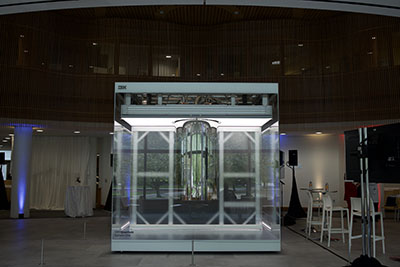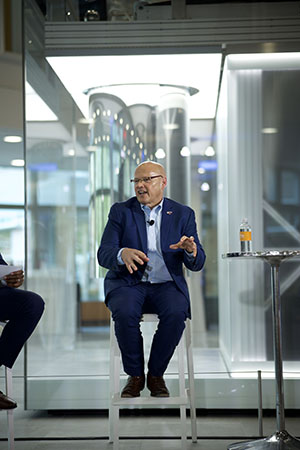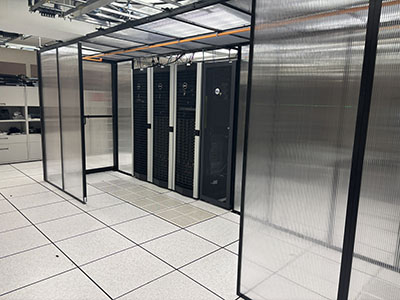Techsplaining 101: Quantum computing and what it means at Miami
Let's learn a little more about quantum computing for this edition of our long-running technology explainer series.
Techsplaining 101: Quantum computing and what it means at Miami
Let's learn a little more about quantum computing for this edition of our long-running technology explainer series.
Through the recently announced partnership with the Cleveland Clinic and the new quantum computing major, the Miami community has been hearing a lot about “quantum.” What does this mean? What kinds of technologies facilitate quantum computing? Where did it come from?
Let’s dive in!
What is quantum computing?
Quantum computing is an emerging field that uses the principles of quantum mechanics to perform computation. A quantum computer is a very different type of computer that uses the weird rule of quantum physics. It uses qubits instead of bits. It solves problems too complex for classical computers.

Now, you’re probably wondering why this is a big deal. Quantum computers can solve some problems WAY faster than regular ones.
The thing about quantum computers is that they are super fragile. They need to be ultra cold, they are hard to build and control, and they are NOT better for everything—just some special types of problems.
Some of these special problems include: simulating molecules and chemistry, breaking big encryption problems, optimization problems, and searching databases.
Things that quantum computers aren’t faster at are some normal tasks such as: browsing the internet, playing video games, typing documents, and watching Netflix. Laptops are better for everyday tasks.
Where did quantum computing come from?
Quantum computing came from quantum physics and computer science—an idea that started forming in the 1970s and 1980s when scientists realized that classical computers couldn’t efficiently simulate quantum systems.
Who came up with quantum computing?
There were several people that had different roles when it came to coming up with quantum computing.
Richard Feynman and Yuri Manin were the main researchers who came up with the idea. Then, theorist David Deutch wrote a paper and made the term formal.
Lastly, Peter Shor showed what quantum computers could really do, while Lov Grover expanded quantum computing’s usefulness. (Some interesting information and timeline highlights can be found at The Quantum Insider.)
How does it affect Miami?
Miami University and Cleveland Clinic have partnered to advance education in quantum computing and elevate Ohio’s global position in this transformative field, reported Susan Meikle in a Miami News article.

Also, there is a new Bachelor of Science in Quantum Computing that launched in Fall of 2025, making it the first in Ohio. Not only that, but it is the first of its type in the United States to focus on the software aspects of quantum computing, as opposed to the hardware.
Quantum computing major
With the major just being approved in March 2025, the students applying now for next Fall are the first class who are able to apply specifically for this major.
What's unique about this major is that students can select a specific academic pathway so they learn how to apply quantum computing to one of six academic areas: Life Science and Bioinformatics, Physics, Artificial Intelligence, Cybersecurity, Neuroscience, or Finance. This degree was created in collaboration with three entities: the Department of Computer Science and Software Engineering out of CEC, the Department of Physics in CAS, and the Cleveland Clinic.
There are already nine students who have declared Quantum Computing as their major, and the number keeps increasing!
Graduates will gain experience with cutting-edge tools like Qiskit, AWS Braket, and can participate in research collaborations across computing, AI, sciences, etc.
There is more info available at MiamiOH.edu/Quantum.
Why does quantum matter to our students?
Quantum computing is expected to transform industries—students trained early will be at the forefront of technological innovation. It will help students develop broad analytical and problem-solving abilities.
There is also a growing demand. Government agencies and companies are investing heavily in quantum technologies. This means that students who have the skills and experience with manipulating quantum simulations will have an advantage when they go to join the workforce!
For more information about the kinds of technologies that will facilitate quantum simulation for those major students, see our article about the Talon Cluster!

